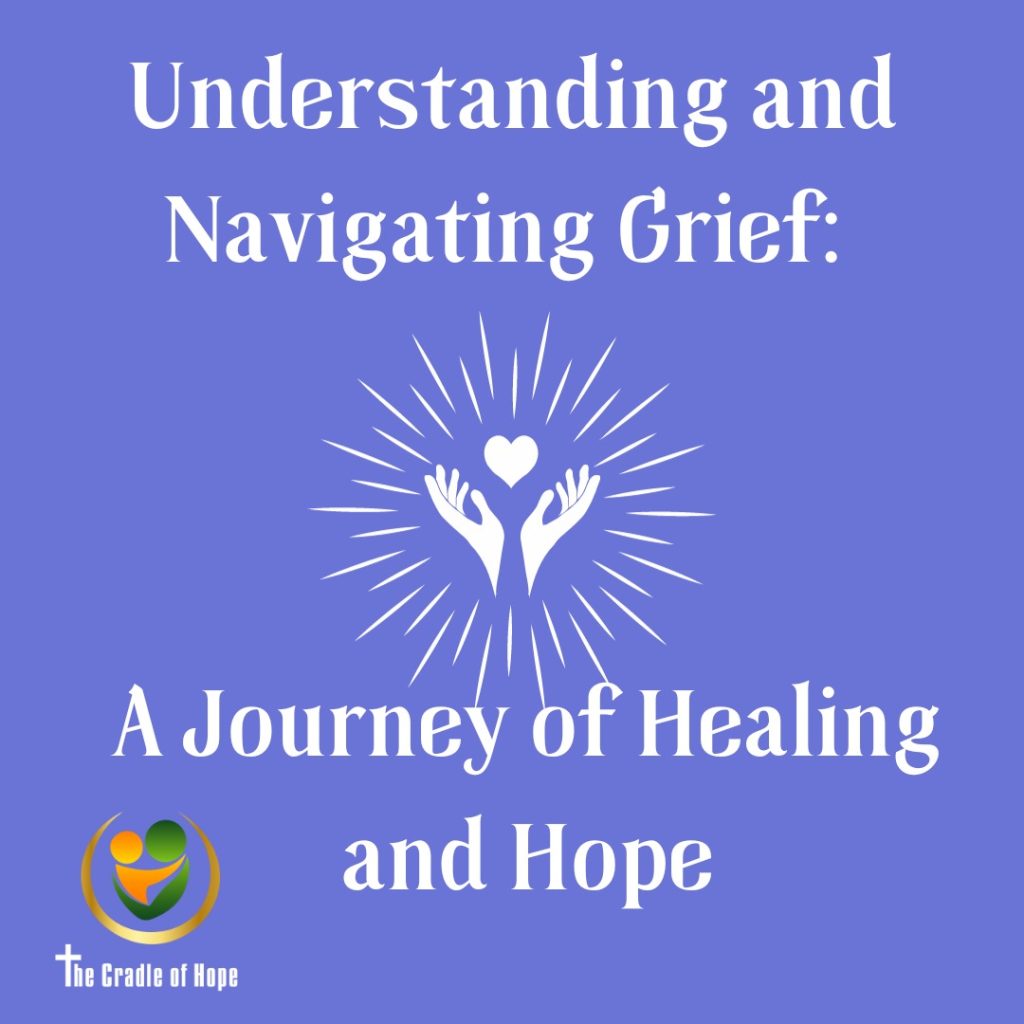Grief is an incredibly complex and deeply personal experience that we all encounter at some point. It is an emotional response to loss, whether it be the death of a loved one, the end of a significant relationship, or even the loss of a job. The sudden and unexpected loss of one of our valued team members at THE CRADLE OF HOPE has undoubtedly left us all in shock and sorrow. This tragic event has traumatised everyone working here to some extent, and we must acknowledge and understand the different stages of grief as we seek to heal and move forward together.
Dr. Elisabeth Kubler Ross, a renowned psychiatrist, identified six stages of grief that individuals often go through when faced with a significant loss. By recognising and embracing these stages, we can better navigate our journey through grief and find healing and hope on the other side.
The first stage is denial, which serves as a protective mechanism when the shock of loss is too overwhelming to comprehend. It is a way for our minds to shield us from the painful reality. During this stage, it is essential to allow ourselves to acknowledge our emotions and seek comfort and support from others. Sharing our feelings and thoughts with trusted individuals can help us process our initial shock and begin to accept the devastating loss.
Anger is the next stage of grief, often characterised by emotions such as frustration, resentment, or even feelings of injustice. Remembering that anger is a normal and natural part of the grieving process is crucial. Finding healthy outlets for anger, such as exercise, journaling, or talking to a therapist, can provide us with a release and help us avoid displacing our anger onto others.
After anger comes bargaining, a stage in which we may search for ways to reverse or change the circumstances that led to our loss. We must recognise that bargaining thoughts are part of the healing process, and it is natural to seek a sense of control or a way to make sense of the tragedy. However, it is equally important to acknowledge that some events are beyond our control and that focusing our energy on processing and moving forward is essential.
The fourth stage is depression, often characterised by sadness, emptiness, and a lack of motivation. This stage can be particularly challenging, as isolating ourselves and withdrawing from the support systems around us is tempting. During this stage, reaching out for professional help and seeking therapy can be incredibly beneficial. Connecting with others who have experienced similar losses can also provide comfort and perspective.
In the penultimate stage, we find acceptance, a place of peace and understanding where we begin to come to terms with our loss. Approval does not mean forgetting or moving on from our grief but instead embracing the reality of our new normal. It is essential to give ourselves permission to mourn and grieve in our own time and unique ways.
While these stages are often referred to as a linear process, it is essential to note that grief is not a one-size-fits-all journey. Individuals may experience these stages in different orders or cycles, and personal healing can occur at various paces. It is vital to allow ourselves and others the grace and space to navigate grief in our individual ways, without judgment or comparison.
In addition to understanding the stages of grief, some strategies and suggestions can help individuals process their grief and deal with it effectively.
First and foremost, creating a safe and supportive environment where individuals feel comfortable expressing their emotions and seeking support is crucial. Encouraging open communication and active listening can provide relief and validation for those experiencing grief. Connecting with a support group or counselling services can also give a sense of community and understanding during this difficult time.
Engaging in self-care activities is equally important. This can include practising mindfulness, exercising regularly, eating nutritious meals, and getting enough rest. Taking time for oneself and engaging in activities that bring joy and relaxation can help individuals regain balance and promote emotional well-being.
Finding healthy coping mechanisms to manage grief is also critical. Some individuals solace in creative outlets such as art, writing, or music. Others may benefit from volunteering or finding ways to honour and remember their lost loved ones. Exploring different coping strategies and finding what works best for oneself is critical to processing grief effectively.
Lastly, patience and compassion for oneself and others are essential. Grief is a deeply personal and ongoing process; recognising that healing takes time is vital. There may be moments of progress and setbacks, and that is entirely normal. Providing support and empathy to those around us, particularly during challenging times, can significantly impact their healing journey.
As we mourn the loss of our beloved team member, let us remember that grief is a process that we will navigate together. By understanding grief stages and engaging in effective coping strategies, we can find solace, healing, and hope. May we find strength in each other and create a compassionate healing space as we honour our dear colleague’s life and legacy. Rest in peace, Olga. You are dearly missed.

